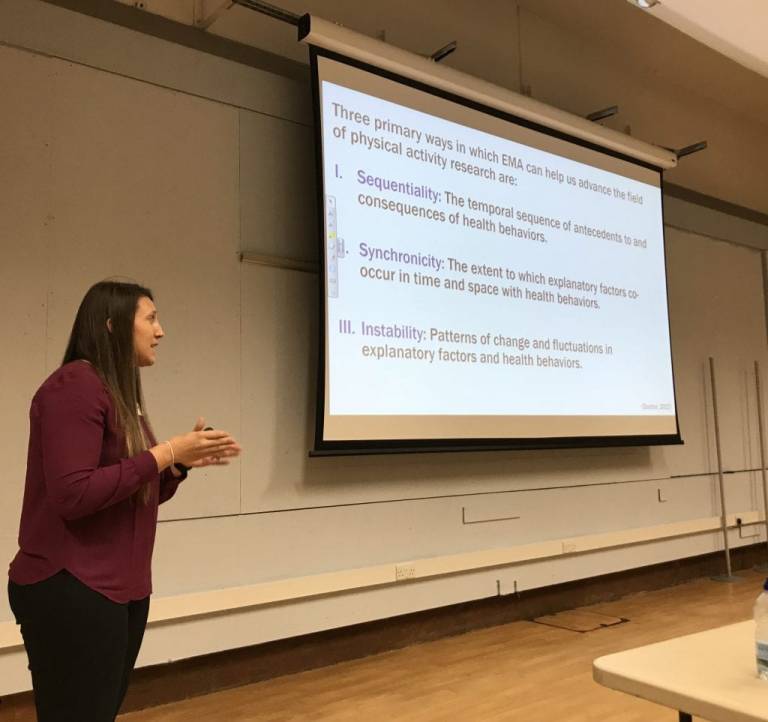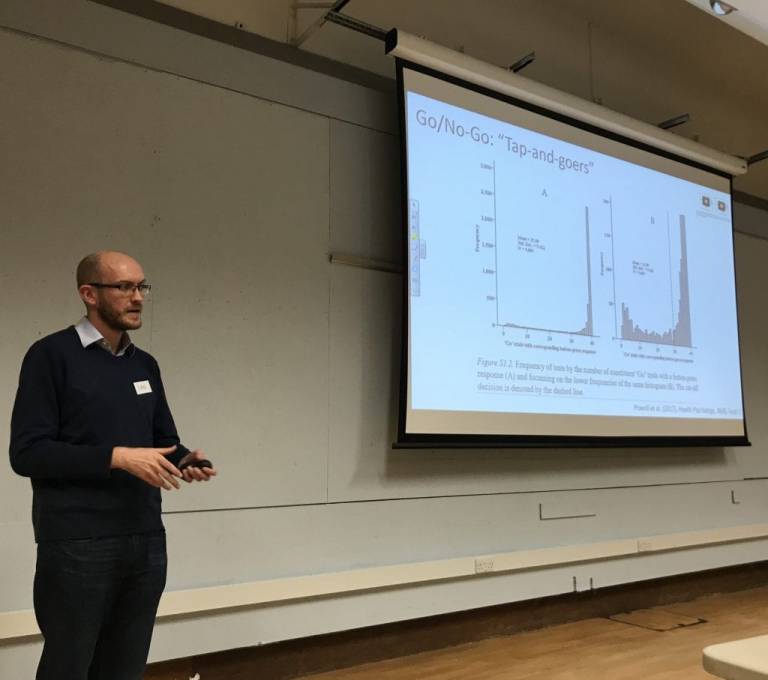Ecological Momentary Assessment to Identify Within-Person Influences on Health-Related Behaviours
A Workshop to Inform Cancer Prevention Research at UCL and Beyond
6 January 2020
Ecological Momentary Assessment (EMA), or ‘experience sampling methodology’, uses repeated real-time measures of cognitions, emotions and behaviour over a period of time in naturalistic settings. By virtue of generating temporally rich and deeply contextualised datasets, this method has the potential to increase the validity of research findings and reduce biases associated with retrospective data collection. EMA is increasingly used to study processes at the within-person level. In order to understand and change behaviour, our theories and interventions need to work for individuals, and not just for the ‘average person’ in larger groups. However, EMA comes with a unique set of challenges including study design, recruitment and retention of participants, and data management and analysis.
The aim of this workshop, which was held at University College London (UCL) on October 12th 2018, was to build understanding of EMA as a novel data collection method and to bring together researchers from across UCL and beyond to form cross-disciplinary collaborations.

The workshop began with two presentations by experts in the field. Dr. Jaclyn Maher (https://kin.uncg.edu/about-us/our-faculty/jaclyn-maher/) described how EMA can help advance our understanding of health behaviours related to cancer prevention. Three concepts which capture the potential of EMA data were introduced by Dr. Maher; sequentiality, synchronicity and instability. Dr. Dan Powell (https://www.abdn.ac.uk/iahs/research/health-psychology/profiles/daniel.p...) discussed threats to data quality in EMA studies. Dr. Powell highlighted pitfalls to consider when designing and conducting EMA studies, to ensure data is of the highest possible quality.

These two thought-provoking presentations were followed by a moderated panel discussion, which covered areas of how to determine adequate sample sizes and sampling frequencies in EMA studies, how to evaluate study quality (e.g. risk of bias) in EMA studies and the issue of ‘measurement reactivity’. This was followed by a networking reception, in which attendees discussed current EMA projects and ideas for future research and cross-disciplinary collaborations.
 Close
Close


